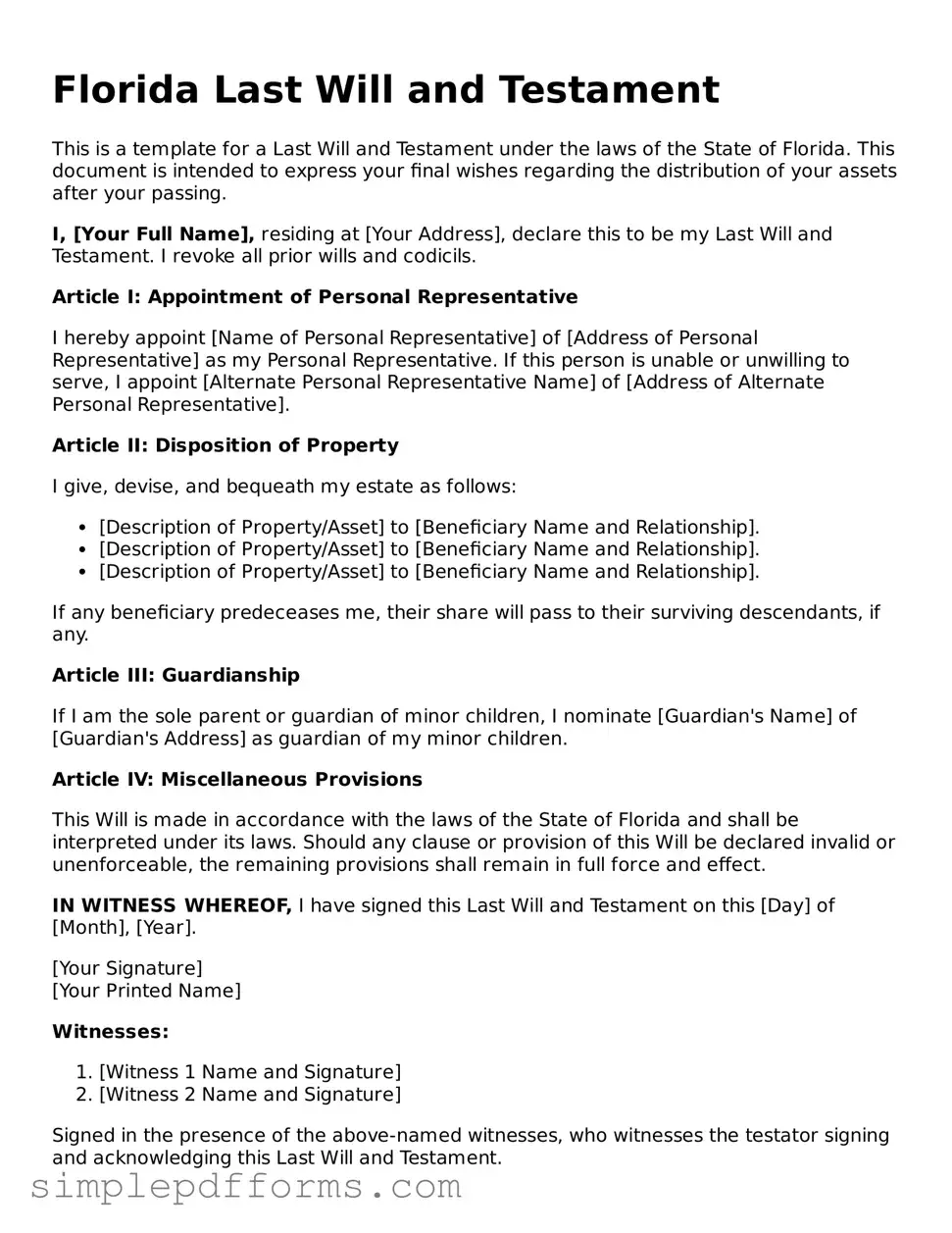Attorney-Verified Last Will and Testament Document for Florida State
A Florida Last Will and Testament form is a legal document that outlines how an individual's assets and responsibilities should be handled after their death. This form allows individuals to specify their wishes regarding the distribution of their property, care for dependents, and appointment of an executor. Creating a will is an essential step in ensuring that your preferences are honored and your loved ones are taken care of.
Open Last Will and Testament Editor Now

Attorney-Verified Last Will and Testament Document for Florida State
Open Last Will and Testament Editor Now

Open Last Will and Testament Editor Now
or
Get Last Will and Testament PDF Form
Your form is waiting for completion
Complete Last Will and Testament online in minutes with ease.